Best Assassin's Creed games ranked: every Assassin's Creed game ranked from best to worst

Assassin’s Creed is quite a strange series to look back on. It spent almost a decade rigidly sticking to its formula and getting buried in it before suddenly overhauling it all in one go. It went from a solid but bloated action-adventure game to a solid but bloated RPG in the blink of an eye – stopping only briefly to become a pirate in the middle.
Love it or hate it, it’s been a cornerstone of gaming since the late 2000s and doesn’t seem to be going away anytime soon. The series may have backed away from annual releases now, but the games are still coming thick and fast.
What makes the best Assassin’s Creed games is hard to distill because every feature can be implemented brilliantly in one game but terribly in another. Ultimately what makes a truly fantastic game in this series is how it pulls everything together to make something that is greater than the sum of its parts.
We’re diving through it all and ranking every Assassin’s Creed game from best to worst. If you want to see how we ranked other iconic series, check out our life of the best Zelda games and best Sonic games too.
Assassin’s Creed Brotherhood
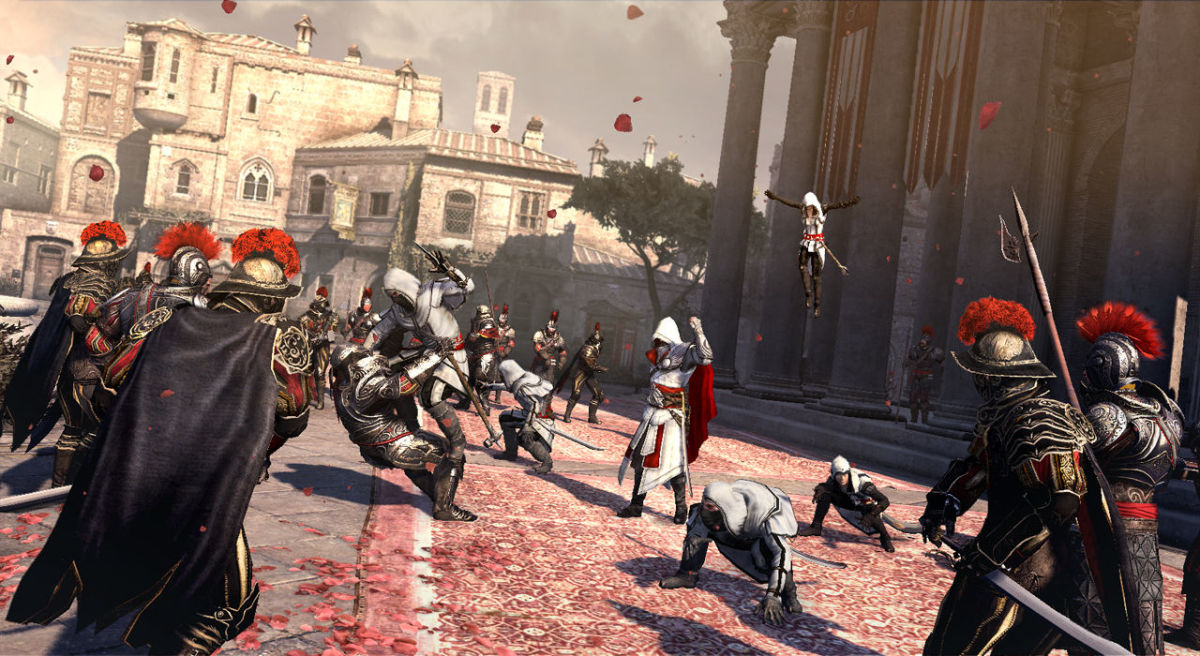
Brotherhood is like Assassin’s Creed 2, but just a little better in almost every way. Brotherhood sets itself in one massive city as opposed to several smaller ones but still manages to pack in the variety, making traversing terrain just as fun as always, and presenting unique challenges. On that note, the Lairs of Rhomulous side missions are by far the best the series has ever produced, giving you a range of challenges with a heavy focus on getting the most out of the parkour.
Plus, it introduced the brilliant multiplayer mode to the series where you hunt down specific targets while remaining as stealthy as you can. It’s extra features like that which make this feel like the definitive experience for the “classic” era of the series. It’s one that I can keep coming back to time and time again without getting tired of it.
Assassin’s Creed 4: Black Flag
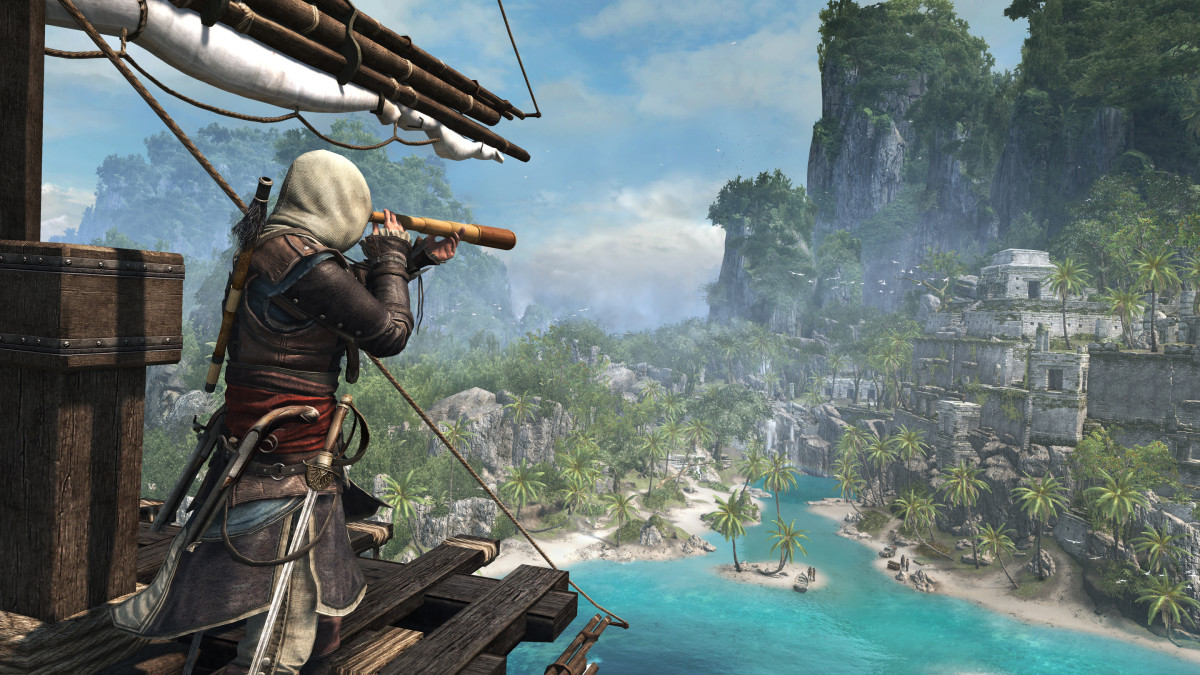
This always feels like a cheat, because everything that makes Black Flag so great has nothing to do with the core of the series – but such is the power of boats that it’s one of the best anyway. All of the classic stealth and action stuff is there, but it’s not what you’ll want to be doing most of the time.
Sailing around the high seas while your crew sings shanties is a purer pirate experience than Sea of Thieves could ever dream of. Then you get to the combat which is so intense and exciting. You have so many different tools at your disposal that you’ll need to keep switching between them as you maneuver your ship to stop yourself from getting sunk. They tried to replicate it a little in future games but it never hit anywhere near as good as it did here.
Assassin’s Creed 2
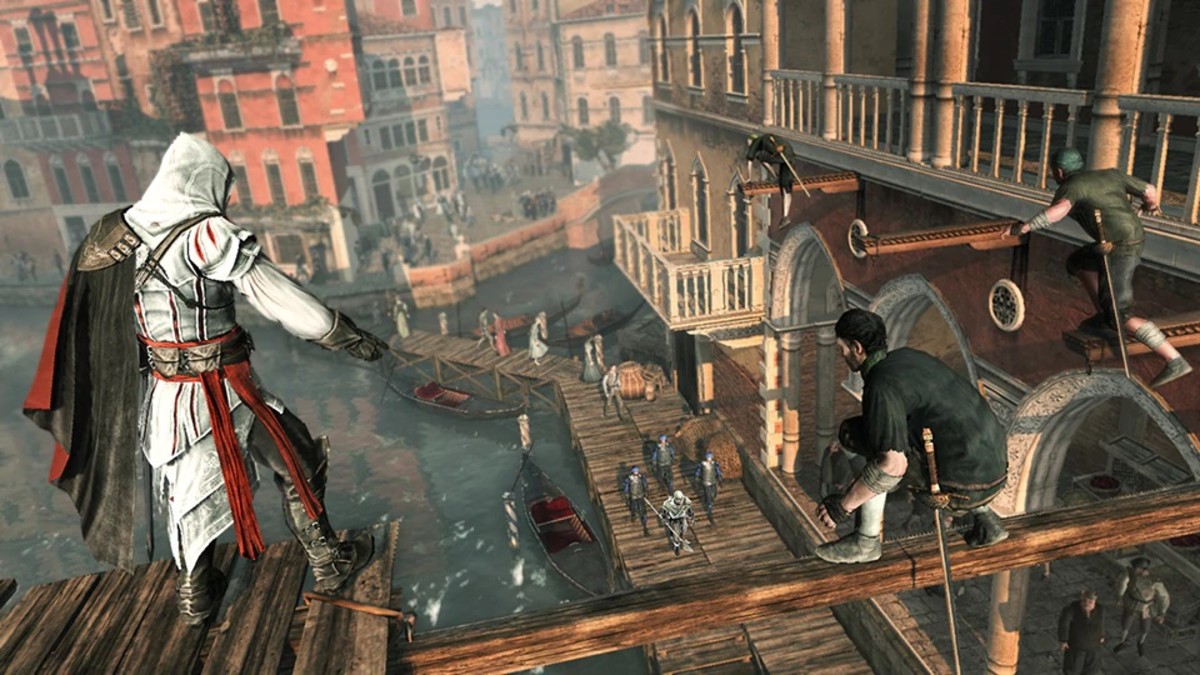
While we bumped it off the top spot in favor of Brotherhood, we’d have to be mad not to include 2 in the top 3.
The different open areas gave great variety when it came to exploration and parkour possibilities, which paired with the slow-rising maturity of Ezio in the story. Speaking of Ezio, he’s easily the franchise’s most memorable character and that’s because this game set him up perfectly, allowing us to see his slow maturation from a head-strong kid into a reserved and skilled assassin.
When people say they want Assassin’s Creed to return to the “glory days”, this is what they’re referring to, and with good reason.
Assassin’s Creed Valhalla
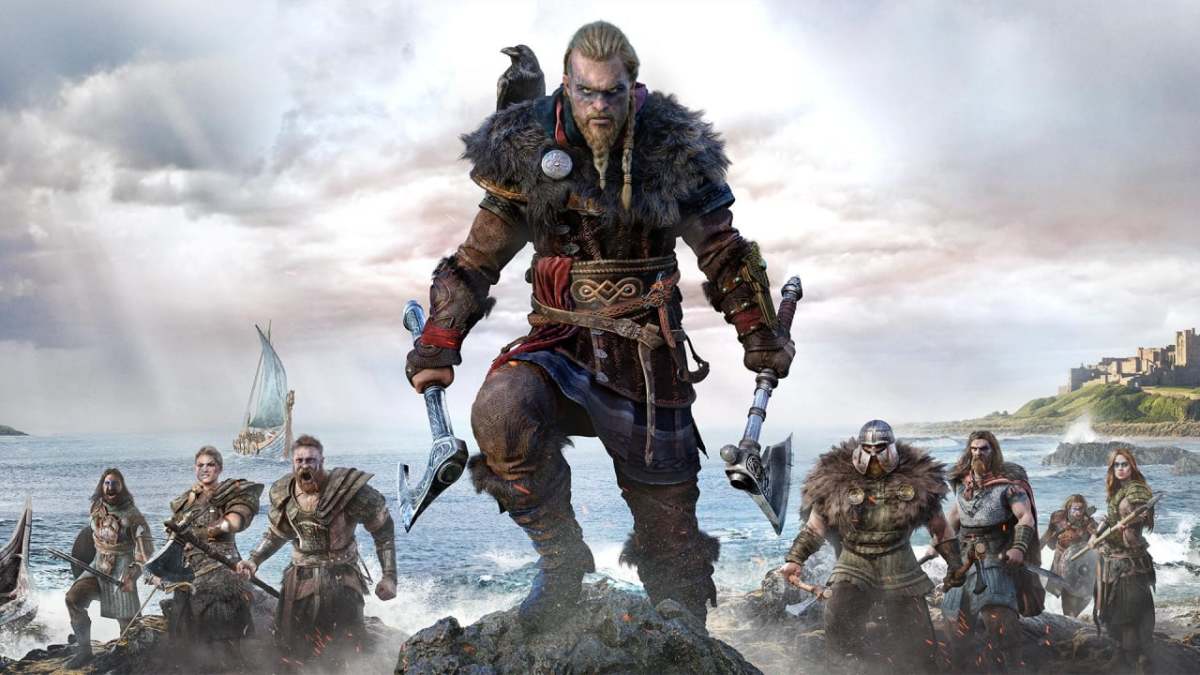
This is the game most antithetical to the original idea of the series, but we’re willing to give it a pass because it’s so much fun. It may be one of the most bloated entries in the series, but it makes the most of the RPG formula.
Combat is very weighty and satisfying, especially in the game’s wide selection of boss fights. The world has more variety than ancient Egypt or Greece, making it far more interesting to explore. Ultimately it’s a beneficiary of being the most recent RPG in the series, not to mention one that has a significantly longer lifespan than the others, with major updates coming up until the end of 2022.
Assassin’s Creed Revelations
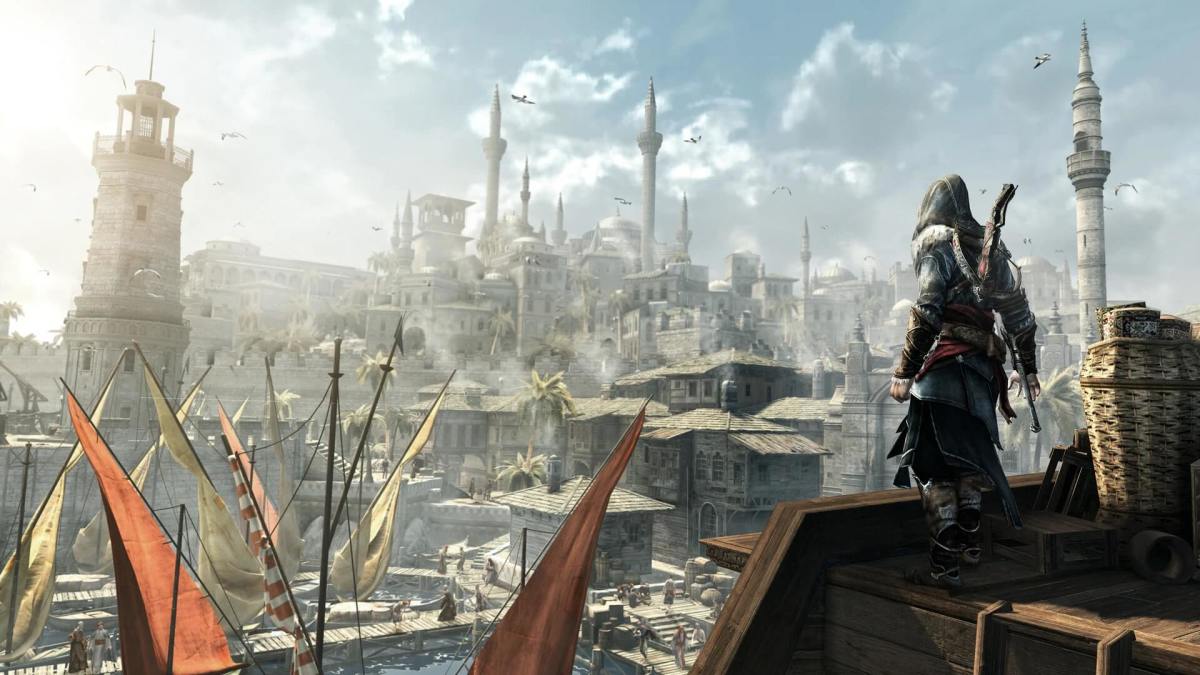
The last and weakest game in the Ezio trilogy, but still one of the series’ best. New features like the bombs and tower defense minigame fell flat on their ass, but simpler additions like the hookblade and zipline made parkour more enjoyable than ever. Adding to this is Constantinople, which still stands as one of the most beautiful cities in the series, it’s the kind of open world you can run around for hours on end getting into all sorts of mischief.
It’s a bit too heavy-handed on the story though, serving as a character piece for Desmond, who is one of the most boring characters ever assembled.
Assassin’s Creed Odyssey
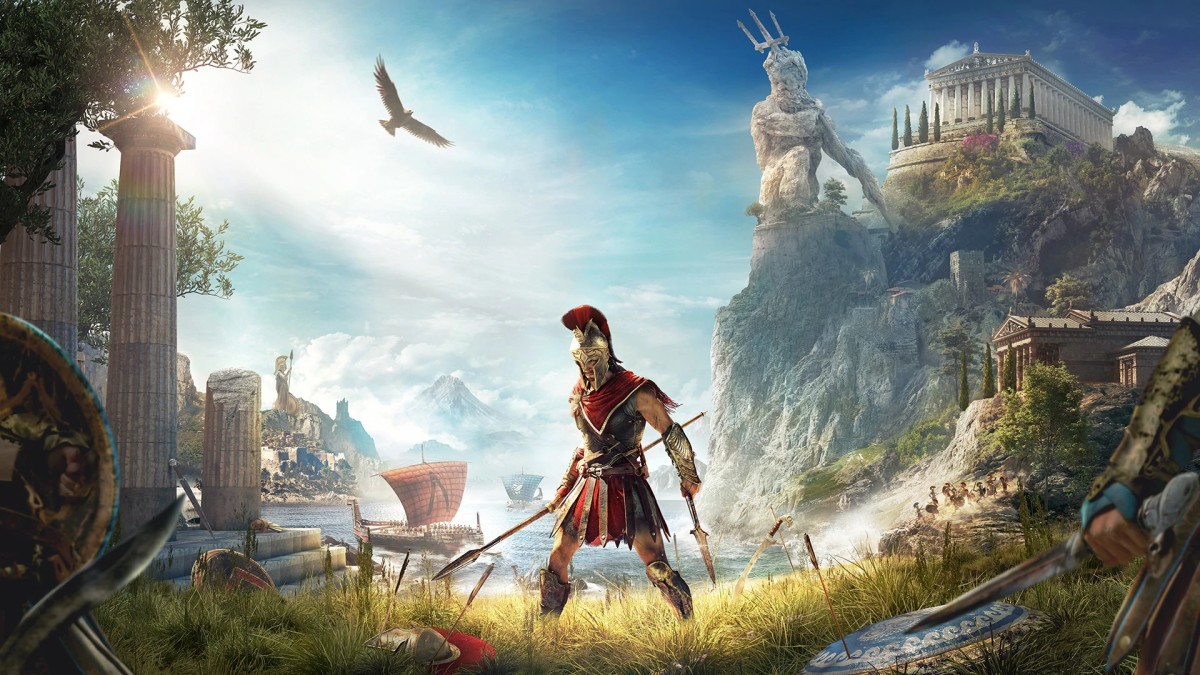
If you’re looking for a solid open-world RPG, then there’s certainly nothing wrong with Odyssey. The only problem is you might never bother to finish it because of how bloated it is. Valhalla has plenty of bloat too, but something about the endless brown hills of ancient Greece makes it far less engaging to explore.
That said, the DLC is some of the best in the series, letting you freely explore the gardens of Elysium and the depths of Atlantis. It just depends on how willing you are to push to the end of the main game in order to reach it.
Assassin’s Creed Origins
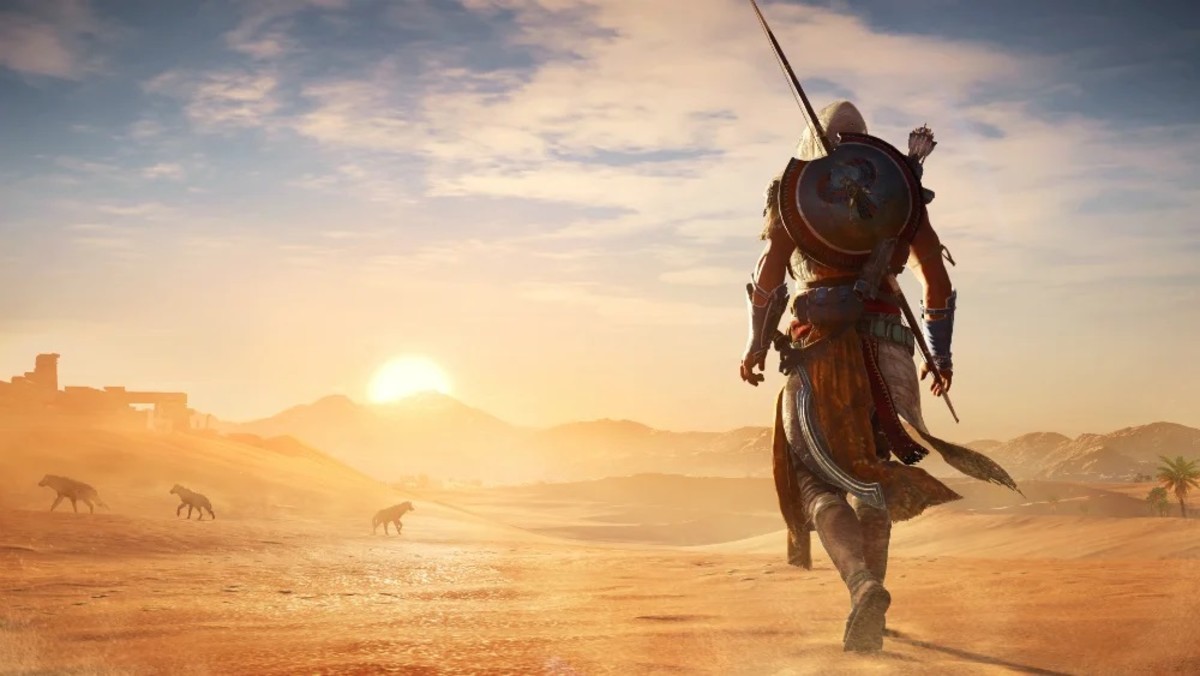
This game felt like a breath of fresh air when it first came out, as we were thoroughly bored with the standard Assassin’s Creed formula by that point. However, the subsequent games built on it quite a lot, and it’s left Origins looking a bit empty by comparison.
While it made more of Egypt’s endless desert than most of us expected, there is still a lot of endless sand with nothing in it. It’s not a bad game by any means, but if you’re looking to try the RPG games for the first time, this isn’t where you should start.
Assassin’s Creed
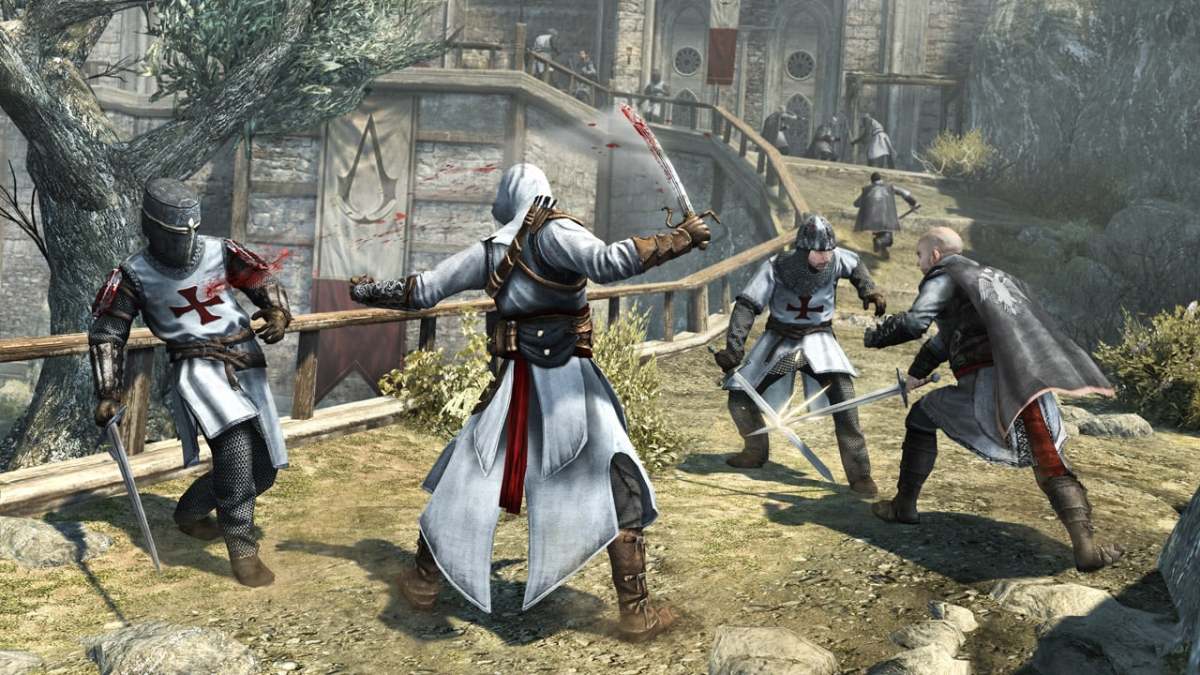
Looking back, the leap from the first to the second Assasin’s Creed game is quite incredible, because there honestly isn’t a lot to the first game. It serves as a good proof of concept for the series’ core ideas. The parkour is solid and fun to play around with, sneaking up and landing assassinations is satisfying, but once you get past that, there isn’t a lot of meat on the bone.
Still, there’s some nostalgia for it that stops it from falling into the dregs of the bottom three.
Assassin’s Creed Rogue
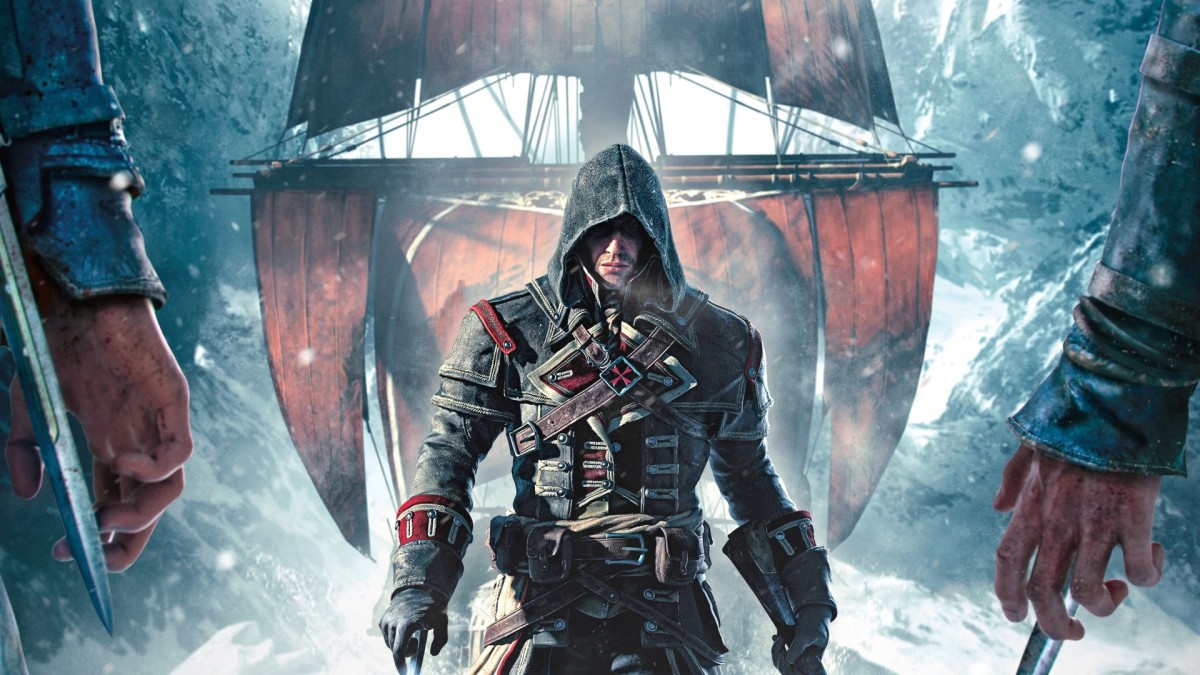
This was a strange game that was initially released exclusively for Xbox 360 and PS3 alongside Unity’s release on the then-new Xbox One and PS4. It’s a baffling decision and it shows because Rogue feels like a fairly lazy copy/past of Black Flag. That’s not a bad thing on its own – Black Flag is one of the best games after all – but it seems like a lot of the open-water fun was taken out of Rogue and replaced with breaking icebergs, which is most certainly a downgrade.
Assassin's Creed Mirage
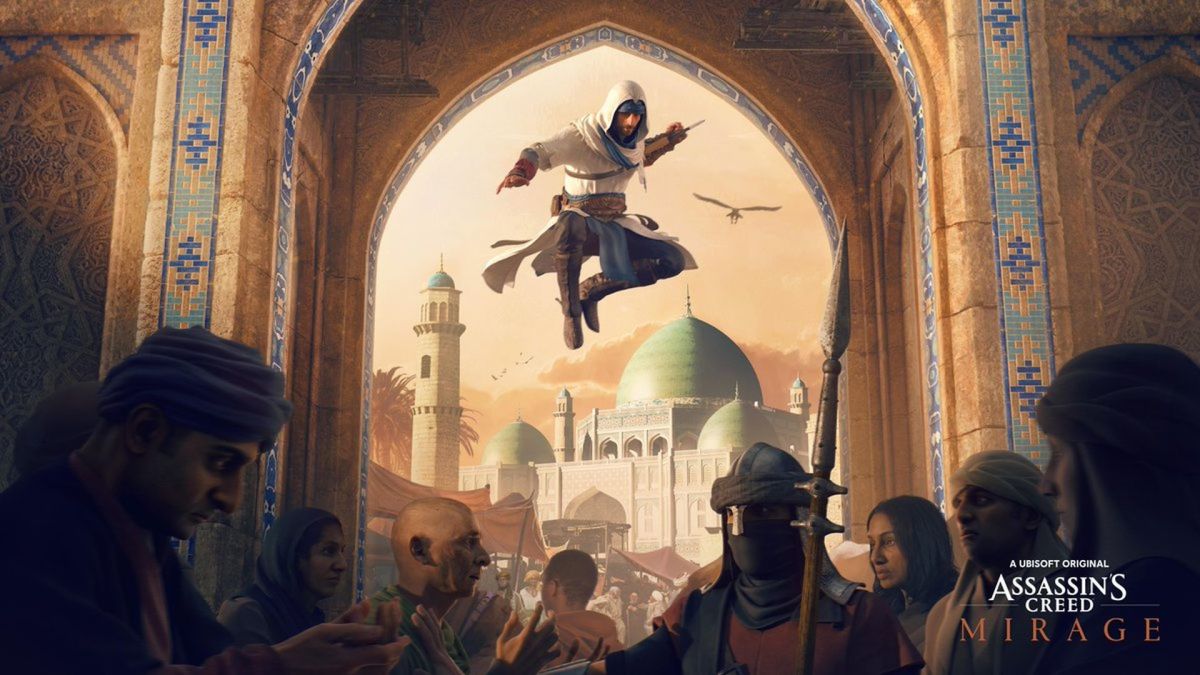
Explicitly marketed as a return to the classic Assassin's Creed formula, Mirage feels like it doesn't quite understand what made games like Brotherhood feel so special.
It has a very beautiful world, with the city of Baghdad serving as a fitting setting for this return to the old style. That said, it doesn't feel like an evolution of any of the old games, instead it serves as a symbol of how stagnant the Assassin's Creed series can sometimes be, taking all the wrong queues from some of the worst games on this list rather than the best. It has some upsides, but mostly it feels like Mirage misses the point of what actually made this series fun in the first place.
Assassin’s Creed 3
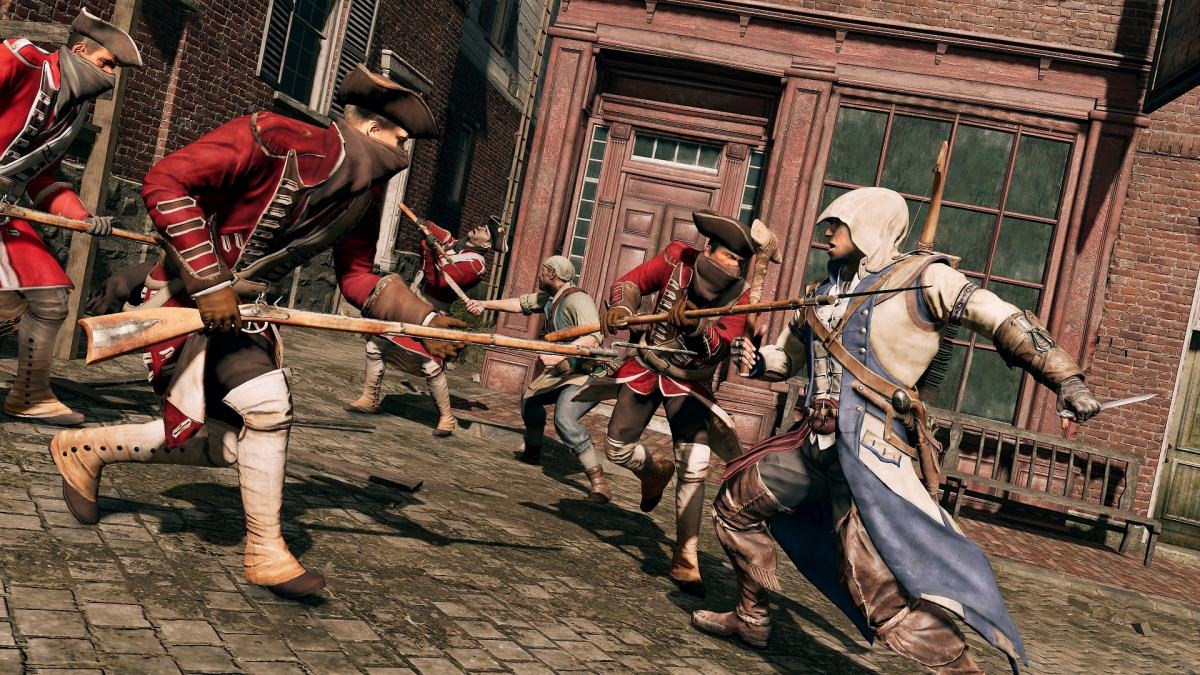
It’s just so sodding boring.
Revolutionary America is a good place to set one of these games, but the world design is so very lacking. The forest areas all blend into one, and even the cities don’t have much to offer. Wide streets and tall buildings mean that parkouring around the city is almost always slower than running along the ground, which defeats the point of the parkour entirely.
The combat is the same dull affair that the whole series had up until then, but it shoves you into the thick of battle so much more often. It seems like after the Ezio trilogy the creators were so worried about making something different that they forgot what the series should actually be about.
Assassin’s Creed Syndicate
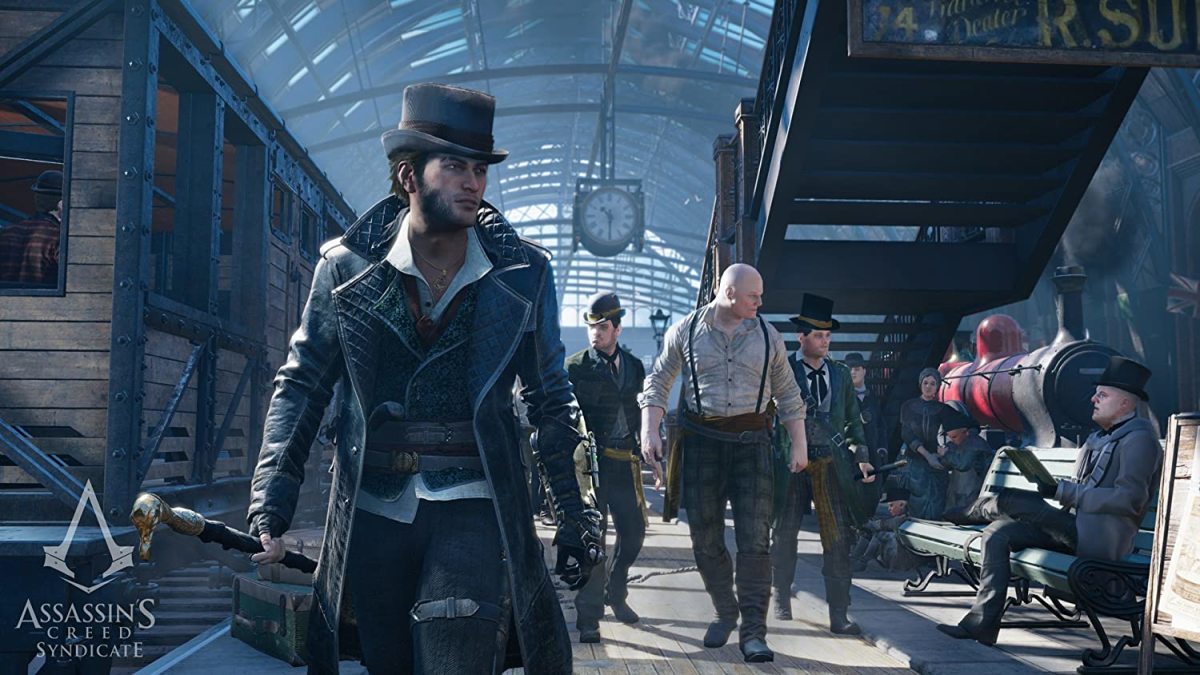
By the time Syndicate came out, the standard formula for the series was completely played out, and a weird leveling system that didn’t actually do anything of consequence wasn’t going to fix that. Like America, industrial London turned out to be a pretty bad city for parkour and traversal. In theory, the grappling hook could’ve saved that, but rather than making it an interesting part of parkour, it just became a system where you hit one button and watched your character automatically zoom over there.
The failings of Unity’s parkour system – more on that in a moment – are still clear as day, and this style of open-world gameplay had no place still hanging around in its bog-standard form in 2015.
Assassin’s Creed Unity
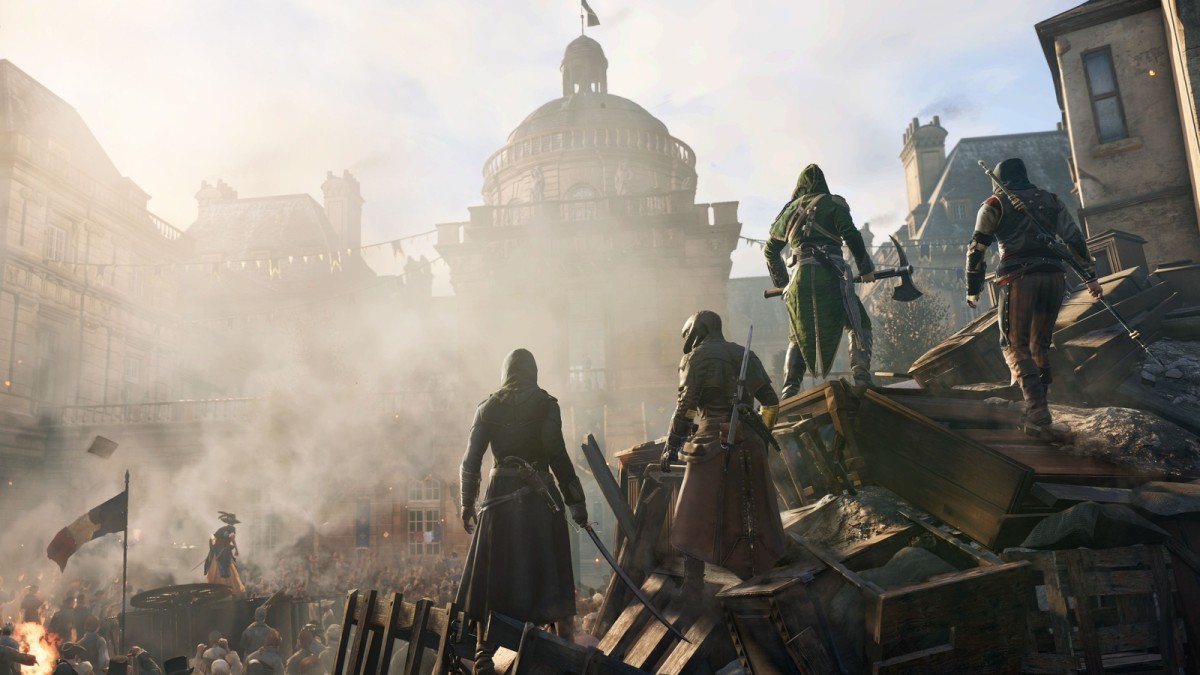
Unity seems to have gotten caught up in a wave of nostalgia recently, but chances are the people reveling in those smooth parkour videos haven’t played the game in a long time.
If you do, you’ll quickly realize that those videos cut out the 50 failed attempts because the auto-parkour system is a piece of trash that never takes you where you actually want to go. The up-and-down commands rarely work how you’d expect them to, making hitting those cool-looking smooth lines virtually impossible without multiple attempts.
It also stands out as the only game where they didn’t make much of an effort to let the setting’s culture pour into every aspect. Everyone in almost every game’s voice cast has appropriate accents for the setting, yet Unity’s Paris is full of thick British accents, both of the cockney and posh variety – it’s infuriating.
I’ve avoided mentioning the hilarious bugs it saw at launch (and still has in many places) but it’s kind of fitting because Unity feels like the one game in the series where absolutely nothing came together how it was intended.
